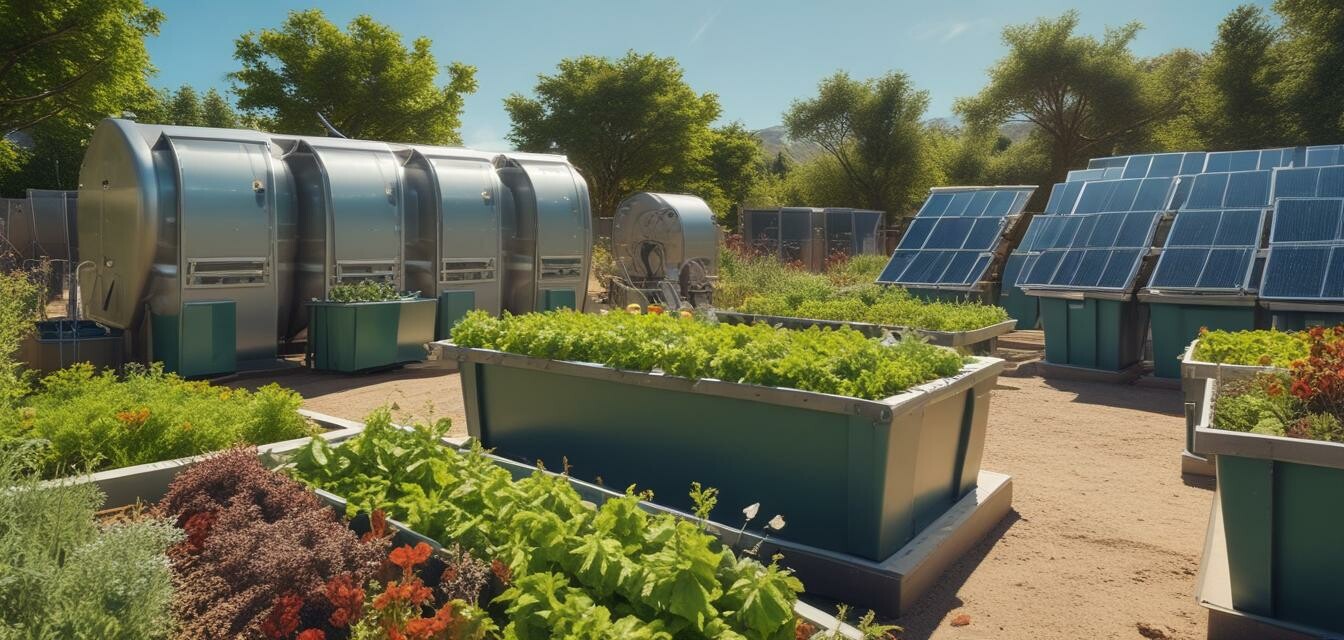
Community initiatives for promoting energy efficiency
Key Takeaways
- Community programs are key to enhancing energy efficiency awareness.
- Educational initiatives encourage the adoption of energy-efficient appliances.
- Local governments play a vital role in promoting sustainable living practices.
- Community incentives boost participation in energy conservation programs.
As we progress into 2025, the importance of community initiatives aimed at promoting energy efficiency has never been more pronounced. Local programs play a critical role in raising awareness about sustainable living practices and encouraging residents to adopt energy-efficient appliances. This article explores various community initiatives that not only promote energy efficiency but also foster a culture of sustainability.
Importance of community initiatives
Community-driven initiatives can significantly impact how residents approach energy use. These programs pave the way for collaboration and raise awareness about the benefits of energy-efficient appliances. Let's delve into some key aspects:
Educational outreach programs
Local organizations and governments often launch educational outreach programs to inform the public about energy efficiency. These initiatives may include:
- Workshops and seminars on energy-saving practices.
- Distributing informational pamphlets about energy-efficient appliances.
- Collaborating with schools to integrate sustainability into the curriculum.
Community energy audits
Another effective strategy is conducting community energy audits. These audits help homeowners identify areas of high energy consumption and suggest improvements. Benefits of these audits include:
| Benefit | Description |
|---|---|
| Cost Savings | Identify appliances that can save money by using less energy. |
| Efficiency Improvements | Recommendations on upgrading to more energy-efficient models. |
| Increased Awareness | Empower homeowners to take charge of their energy consumption. |
Incentives for energy efficiency
Financial incentives often entice households to transition to energy-efficient appliances. Here, community programs set the stage for various incentives such as:
- Subsidies for purchasing energy-efficient models.
- Tax rebates for homeowners who make eco-friendly upgrades.
- Discounts on utility bills for reduced energy consumption.
Collaborative community models
Collaboration among community members is crucial for fostering a sustainable environment. Successful examples include:
- Neighborhood solar cooperatives: Groups pool resources to invest in solar panels.
- Community workshops: Engage residents in energy-saving practices like composting and home gardening.
- Local festivals: Highlight energy-efficient products and educate attendees through interactive experiences.
Case studies of successful initiatives
Certain communities have paved the way with innovative programs that encourage energy efficiency:
| Community | Initiative | Outcome |
|---|---|---|
| Green Town | Energy Efficiency Challenge | Reduced energy usage by 30% over two years. |
| Eco City | Home Upgrade Program | Over 250 homes improved with energy-efficient appliances. |
| Sustainable Village | Community Gardens | Increased awareness of sustainable practices among residents. |
Government involvement
The role of local government cannot be understated. Many initiatives receive support through policies aimed at:
- Funding community projects that promote energy efficiency.
- Creating regulations that encourage the use of sustainable appliances.
- Facilitating partnerships with local businesses.
For more information about government programs, check our article on energy-efficient appliances.
Looking ahead to 2025
The future of energy efficiency will depend significantly on community initiatives. As innovations emerge in the energy sector, communities will need to adapt and refine their programs. Key trends to watch for include:
- Growing emphasis on smart home appliances.
- Increased collaboration with technology providers.
- Broader community involvement in sustainability practices.
Conclusion
Community initiatives play a vital role in promoting energy efficiency and sustainable living. As we move towards 2025, an increase in awareness, incentives, and proactive participation from local governments and community members will be essential in shaping a greener future for all.
Tips for getting involved
- Join local sustainability groups to learn about current initiatives.
- Attend community workshops on energy efficiency.
- Participate in local green events and fairs.
Pros
- Enhanced community awareness about energy efficiency.
- Potential cost savings for households.
- Increased community engagement in sustainability efforts.
Cons
- Initial financial investment may be needed for some programs.
- Participation may vary among community members.
